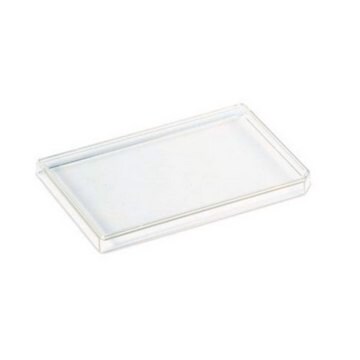TGFBMAG-64K-01BK
MILLIPLEX® TGFß1 Magnetic Bead Single Plex Kit Space Saver (Bulk) Packaging
for quantification of the TGF-β1 biomarker in the multiple species
Se connecterpour consulter vos tarifs contractuels et ceux de votre entreprise/organisme
About This Item
Code UNSPSC :
12161503
eCl@ss :
32161000
Nomenclature NACRES :
NA.47
Produits recommandés
Niveau de qualité
Espèces réactives
human, pig, canine, rat, nonhuman primates, mouse, feline
Fabricant/nom de marque
Milliplex®
assay range
sensitivity: 12 pg/mL
standard curve range: 9.8-2,500 pg/mL
Technique(s)
multiplexing: suitable
Compatibilité
configured for Single Plex
Méthode de détection
fluorometric (Luminex xMAP)
Conditions d'expédition
wet ice
Description générale
The transforming growth factor beta (TGFβ) system, a superfamily of cytokines as well as signaling pathways, is highly conserved throughout the animal kingdom. TGFβ functions in immune cell development, angiogenesis, wound healing and embryonic development, bone development and plays a critical role in immune response, heart disease, and cancer. In its normal state TGFβ is one of the few classes of proteins able to inhibit cell growth by halting mitosis at the G1 state, inducing cell differentiation or apoptosis. However, during oncogenesis mutations in the TGFβ signaling pathway result in tumor cell resistance to the effects of normally functioning TGFβ, causing proliferation without regulation. Initial research suggests that VE-cadherin may enhance the mutated TGFβ signaling pathway.
The MILLIPLEX® TGFβ1 Single Plex Magnetic Bead Kit is a single plex kit to be used for the quantification of TGFβ in serum, plasma, tissue/cell lysate and culture supernatant
samples.
The Luminex® xMAP® platform uses a magnetic bead immunoassay format for ideal speed and sensitivity to quantitate multiple analytes simultaneously, dramatically improving productivity while conserving valuable sample volume.
Panel Type: Cytokines/Chemokines
The MILLIPLEX® TGFβ1 Single Plex Magnetic Bead Kit is a single plex kit to be used for the quantification of TGFβ in serum, plasma, tissue/cell lysate and culture supernatant
samples.
The Luminex® xMAP® platform uses a magnetic bead immunoassay format for ideal speed and sensitivity to quantitate multiple analytes simultaneously, dramatically improving productivity while conserving valuable sample volume.
Panel Type: Cytokines/Chemokines
Spécificité
In addition to human TGFβ1, the assay can detect TGFβ1 in serum of the following; horse, rabbit, mouse, rat, mini pig, canine, hamster, guinea pig, rhesus monkey and cynomolgous monkey. However, the exact amount of cross reactivity has not been determined.
Application
- Analyte: TGFβ1
- Recommended Species: In addition to human TGFβ1, the assay can detect TGFβ1 in serum of the following: horse, rabbit, mouse, rat, mini pig, canine, hamster, guinea pig, rhesus monkey and cynomolgus monkey. However, the exact amount of cross reactivity has not been determined.
- Recommended Sample Type: Serum, plasma, cell/tissue culture supernatants and lysates
- NOTE: This assay requires a sample acidification treatment using the provided reagents and protocol.
- Recommended Sample Dilution: 25 μL per well of a 1:30 dilution after acidification treatment of serum and plasma samples; cell/tissue culture samples may require dilution prior to acidification treatment (see protocol for details).
- Assay Run Time: Overnight (16-18 hours) at 2-8°C or alternatively, 2 hours at room temperature (20-25°C).
- Research Category: Inflammation & Immunology
- Research Subcategory: Cardiovascular Disease, Chronic Inflammatory Disease, Immune Disorders, Inflammatory Disease, Rheumatoid Arthritis
Stockage et stabilité
Recommended storage for kit components is 2 - 8°C.
Informations légales
Luminex is a registered trademark of Luminex Corp
MILLIPLEX is a registered trademark of Merck KGaA, Darmstadt, Germany
xMAP is a registered trademark of Luminex Corp
Clause de non-responsabilité
Unless otherwise stated in our catalog or other company documentation accompanying the product(s), our products are intended for research use only and are not to be used for any other purpose, which includes but is not limited to, unauthorized commercial uses, in vitro diagnostic uses, ex vivo or in vivo therapeutic uses or any type of consumption or application to humans or animals.
Certificats d'analyse (COA)
Recherchez un Certificats d'analyse (COA) en saisissant le numéro de lot du produit. Les numéros de lot figurent sur l'étiquette du produit après les mots "Lot" ou "Batch".
Déjà en possession de ce produit ?
Retrouvez la documentation relative aux produits que vous avez récemment achetés dans la Bibliothèque de documents.
Notre équipe de scientifiques dispose d'une expérience dans tous les secteurs de la recherche, notamment en sciences de la vie, science des matériaux, synthèse chimique, chromatographie, analyse et dans de nombreux autres domaines..
Contacter notre Service technique